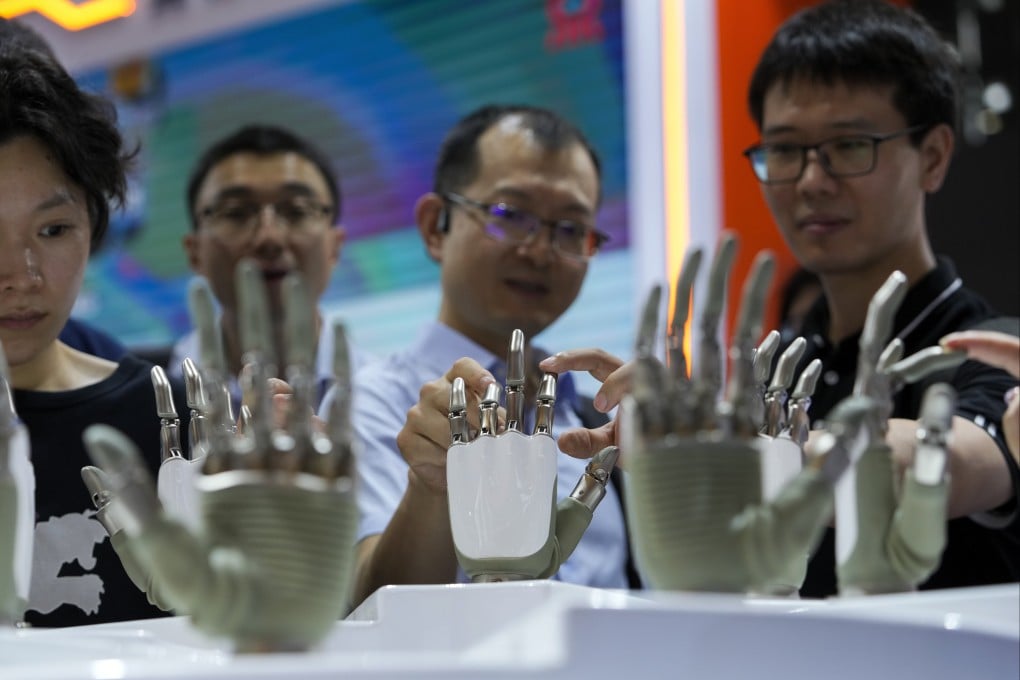Advertisement
Opinion | China is not only winning the tech war. It’s also rewriting the rules
As the US attempts to block China’s tech growth, the world’s second-largest economy has two points of leverage undercutting those efforts
Reading Time:3 minutes
Why you can trust SCMP
14

The United States finds itself increasingly challenged by China’s strategic position. China’s proverbial traffic lights – control over raw materials and its fast-growing edge in artificial intelligence (AI) – are squeezing the US-led semiconductor and technology ecosystem. China is not only circumventing US efforts to restrict its access to advanced technology but also redefining the rules of global competition.
Advertisement
However, the US has built a traffic light of its own with some allies joining efforts to contain China’s technological development. The US can keep the red light on to stop the outflow of semiconductors and the inflow of Chinese products and services across various sectors from information technology to social media applications.
Since the US began curtailing China’s technology development, smaller Chinese firms have exited the industry. I wrote a chapter analysing the demise of these firms for a book that is due for release later this year.
China’s control over raw materials essential for semiconductors, military technology and pharmaceutical products is unparalleled. Rare earth elements, indispensable for advanced manufacturing, have long been dominated by China, accounting for over 70 per cent of the global supply. China has also strategically invested in refining and processing critical minerals like lithium, cobalt and graphite.
By curtailing the export of these materials, China exerts significant pressure on industries in the US and other advanced economies. These materials are the foundation for producing everything from smartphones to fighter jets. Without a steady supply, companies relying on hi-tech manufacturing in the US, Europe and Asia face disruptions, exposing their dependence on China.
Advertisement
Blocking the exports of rare earth elements mirrors the US policy of restricting semiconductor exports to China. The US seeks to curtail China’s access to advanced chips used in AI, military applications and supercomputing.

Advertisement
